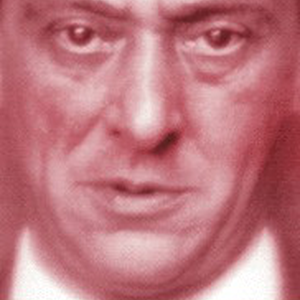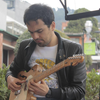Estonian Arnold Schoenberg Society was established in August 1992 by eleven young musicians, most of whom were studying or had studied in the Tallinn Conservatoire (now Estonian Academy of Music and Theatre). The Society arose as a reaction to the situation that prevailed in the relatively conservative and uniform musical life in Estonia in the late 1980s, and as a yearning for a new spirit in the music scene. As a symbol of the 20th century's musical avant-garde Arnold Schoenberg had been seen as its spiritual father. For the society it was important to "domesticate" new musical ideas in the cultural space of Estonia: the statutes of association aims to "investigate and disseminate the musical heritage of Arnold Schoenberg and his pupils, as well as other innovative musical traditions related to musical modernism."
Today, all members of Estonian Arnold Schönberg Society are professional musicians: composers, performers, researchers and teachers of music. Already in January 1988, the musicians who later founded the society had begun to organize Pärnu Days of Contemporary Music (PNP) in order to study and perform new music that was not taught and discussed in music schools. During the first PNP's 1988-1994 and in 1998 the main emphasis was on selected composers of the 20th century whose music was played at concerts and analyzed in the symposiums. The society has also organized different multimedia workshops and, in cooperation with the Estonian Academy of Arts, has also developed a project in which people – with or without musical background - are building experimental musical instruments and composing music using these instruments.
Publishing activities of Estonian Arnold Schoenberg Society are held in cooperation with the cultural Magazine Teater.Muusika.Kino. Estonian Arnold Schoenberg Society monitors the development of the Estonian contemporary music terminology and concepts definitions in the free encyclopaedia Wikipedia. As a result of the activities of the society, the main music libraries in Tallinn, Tartu and Pärnu have revised their collections regarding books, scores, and other materials on musical modernism. Estonian Arnold Schoenberg Society has a cooperation agreement with the National Library of Estonian to store its collection.
The Estonian Arnold Schönberg Society is interested in cooperation in projects that would in one way or another connect with and expand the society's current activities:
1. to make a teaching of musical composition a part of general music teaching. In cooperation with Tallinn University, which began in 2018, a digital learning tool for music composition teaching aimed at upper secondary schools has been developed and published in Wikibooks and in the digital learning tool environment E-koolikott. A longer-term plan is to create a music composition teaching tool for basic schools and children's music schools as well.
2. microtonal music project, which began at the Pärnu Contemporary Music Days in 2021–2023, is to coordinate the creation, interpretation and research of microtonal music in Estonia in international cooperation. The project focuses primarily on the equally tempered 22-tone system, abbreviated 22vjo (22 equal divisions of the octave, 22edo), which is based on dividing the octave into twenty-two equal intervals with a frequency ratio of twenty-two root of two, or approximately 54.55 cents.
3. Benin Traditional Music Project, which began in 2017, aims to study and introduce to the Estonian and international music community the rhythmic structure of Beninese and West African traditional (classical) music, which could be characterized by the words "polypulsating modal rhythms". Alongside the monopulsating metric and apulsative ametric music familiar to Western musicians, polypulsating modal rhythms seem to form a separate rhythmic type unknown in Western music.
4. in order to develop the technical language of contemporary music, the Estonian Arnold Schönberg Society's Modern Music Technical Language Commission (NOKK) was established in 2009, with the aim of researching, organizing and making available to the public the terminology of contemporary music in Estonian. To this end, the commission is engaged in collecting, systematizing and defining the concepts of contemporary music, creating and organizing Estonian-language contemporary music terms, and publishing the results of its work.
5. experimental musical instruments project developed in collaboration with Estonian Academy of Arts as a tool of learning to compose for (adult) non-musicians.
In developing pan-European cooperation, the Estonian Arnold Schönberg Society can also make for project possible its contacts and cooperation partners in Estonia:
• Musicology Department of Estonian Academy of Music and Theatre can be responsible for evaluation of music composition teaching tools and developing music terminology;
• Baltic Film, Media, Arts and Communication School of Tallinn University can develop the research activities of the projects;
• New Media Department of Estonian Art Academy can be responsible for the construction of experimental musical instruments and offer assistance regarding audiovisual technologies;
• Pärnu Opera can organize performances, concerts, festivals and workshops, using the Pärnu Contemporary Music Days held in Pärnu, MUSICA SACRA concert series and Summer Aria Festivals as a platforms for this.
https://www.schoenberg.ee/
https://www.facebook.com/schoenberg.ee


